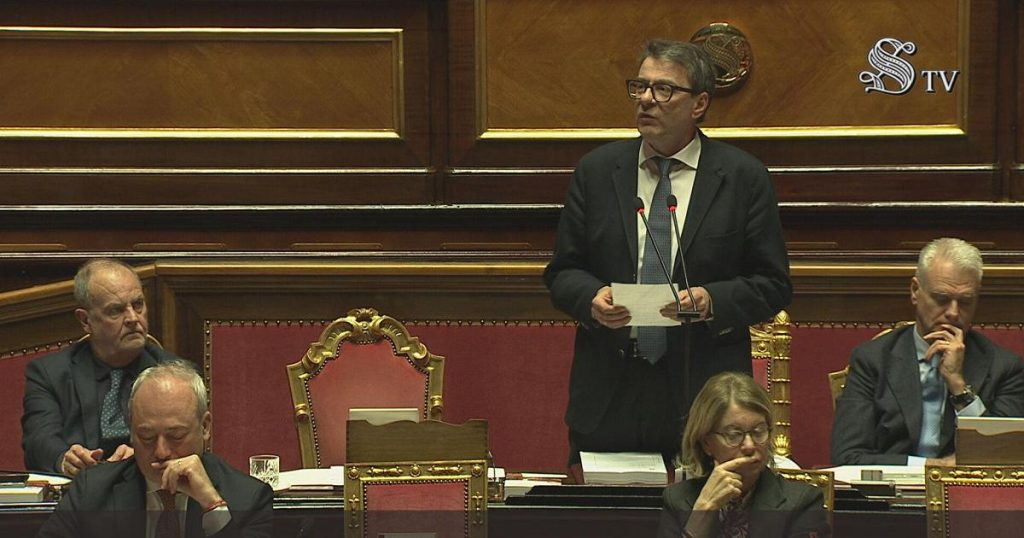The budget law arrives at the Senate in a highly contested state, with a final vote expected to take place soon. The majority views the law positively, as it manages to balance economic growth with structural measures for employment despite the heavy burden of the super-bonus program. The examination of the law in the commission was not completed, leading to the rapporteur Liris issuing a warning against the practice of analyzing legislation in only one chamber of Parliament. Minister Giorgetti also comments on the issue, stating that while the government is open to discussions on procedural matters, the initiative ultimately lies with the parliament. The minister also defends the prudence of the budget and highlights the structural cut in the tax wedge.
Opposition parties criticize the handling of the rapporteur issue, placing the blame on the government and its majority for the lack of a bicameral approach. They view the two-month delay in the Chamber of Deputies and the subsequent two-day discussion in the Senate as a farce. Action, Italia Viva, and the Democratic Party request President Meloni’s presence during the final Senate debates as a sign of institutional respect. The minority parties argue that the budget law is regressive, providing small favors while defunding healthcare and the southern regions according to Avs and the PD, respectively. They also criticize investments in the Messina Bridge and the arms industry as highlighted by the Five Star Movement. The issue of trust is once again raised to maintain cohesion within the majority, as stated by Boccia.
Tensions regarding the budget law persist, with the legislative process being criticized for lack of transparency and bipartisanship. The government emphasizes the need for prudence in managing the economy and defends the decision to cut taxes. The opposition parties believe that the budget is skewed in favor of certain industries and regions, neglecting essential sectors such as healthcare and the southern parts of the country. The issue of trust is used as a tool to rally support within the majority, causing further division among political factions. The debate in the Senate reflects the broader political climate in Italy, with different parties pushing their agendas while struggling to find common ground on crucial economic issues.
The standoff over the budget law highlights the challenges faced by the Italian government in balancing economic growth with social welfare and structural reforms. The delays in the legislative process and the focus on trust votes reveal the underlying power dynamics within the majority coalition and the opposition parties. The budget law’s perceived shortcomings, such as the allocation of funds to specific projects and industries, fuel further debate and contention among political actors. The need for institutional reform and a more inclusive decision-making process is evident, as both the government and the opposition parties continue to clash over key economic policies and priorities.
In conclusion, the budget law debate in the Italian Senate underscores the complex nature of governance and policymaking in a fragmented political landscape. The struggle for consensus and the use of trust votes to maintain majority cohesion reflect the underlying tensions and power dynamics within the country’s political system. Both the government and the opposition parties must navigate these challenges to address the pressing economic and social issues facing Italy. The budget law’s impact on different sectors and regions has sparked heated debates and criticism, highlighting the need for a more inclusive and transparent decision-making process. Ultimately, finding common ground and forging compromises will be essential for moving forward and addressing Italy’s economic challenges effectively.


